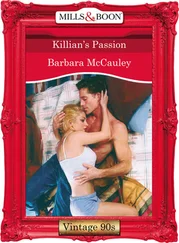Barbara Branden - The Passion of Ayn Rand
Здесь есть возможность читать онлайн «Barbara Branden - The Passion of Ayn Rand» весь текст электронной книги совершенно бесплатно (целиком полную версию без сокращений). В некоторых случаях можно слушать аудио, скачать через торрент в формате fb2 и присутствует краткое содержание. Жанр: Биографии и Мемуары, на английском языке. Описание произведения, (предисловие) а так же отзывы посетителей доступны на портале библиотеки ЛибКат.
- Название:The Passion of Ayn Rand
- Автор:
- Жанр:
- Год:неизвестен
- ISBN:нет данных
- Рейтинг книги:4 / 5. Голосов: 1
-
Избранное:Добавить в избранное
- Отзывы:
-
Ваша оценка:
- 80
- 1
- 2
- 3
- 4
- 5
The Passion of Ayn Rand: краткое содержание, описание и аннотация
Предлагаем к чтению аннотацию, описание, краткое содержание или предисловие (зависит от того, что написал сам автор книги «The Passion of Ayn Rand»). Если вы не нашли необходимую информацию о книге — напишите в комментариях, мы постараемся отыскать её.
The Passion of Ayn Rand — читать онлайн бесплатно полную книгу (весь текст) целиком
Ниже представлен текст книги, разбитый по страницам. Система сохранения места последней прочитанной страницы, позволяет с удобством читать онлайн бесплатно книгу «The Passion of Ayn Rand», без необходимости каждый раз заново искать на чём Вы остановились. Поставьте закладку, и сможете в любой момент перейти на страницу, на которой закончили чтение.
Интервал:
Закладка:
"My concept of good and evil" she would later comment, "already in the process of being formed, saw its vindication everywhere" — as if reality had become the sort of fiction she later would create: a conflict, written larger than life, between two opposing views of man, two opposing views of human society, two opposing views of morality.
In the beginning, it seemed to Alice "that everybody of any political denomination was in favor of the February revolution. And everybody was against the Czar. What fascinated me was that it fit in with my own stage of development — it was the only time I was synchronized with history. It was almost like fiction taking place in reality. That was why I became so interested. I know that I romanticized it a great deal. It seemed the fight for freedom; since that's what they were talking about, I took it literally — by which 1 meant individualism: it's man who must be free."
Even at so early an age, Alice had concluded that she was opposed to "the government or society or any authorities imposing anything on anyone." With the February revolution, "I began to understand that politics was a moral issue." It was a perception she never was to lose or waver from: Is man free to choose his own purposes and set his own goals — or is he forced to accept and live by the goals and purposes of others? Freedom was the issue; in the realm of politics, it was the only issue, it was the heart and soul of her political philosophy.
Alexander Kerensky, thought Alice — hearing the adults discuss his ringing speeches in defense of liberty — was a man who stood for freedom and the individual. Kerensky became important to her as the first man outside of books and her own imagination whom she could admire. She listened eagerly to everything the adults said about him, and surreptitiously scanned the forbidden newspapers for further stories. She reported, "I could never be allowed to go to a political meeting where he spoke, so my great dream was to catch a glimpse of him somewhere. I never did." But Alice collected his photographs, and despite her mother's annoyance, she plastered her bedroom walls with them, as American girls thousands of miles and a generation away would plaster their walls with pictures of matinee idols.
"My infatuation with Kerensky had a very important influence on me in one respect" Alice later said. "I decided that I could never be in love with an ordinary man. I said to Mother, 'I'm in love with Kerensky.' The adults said it was an infatuation, not love — so I stopped telling them. I concluded that I am in love, it's not just infatuation. And since he was married, I would never marry — because I could never be in love with anyone but a hero. In my last years in high school, when girls began to go out on dates, I remember feeling a very superior contempt: How can they be interested in just ordinary boys? I have to have a hero. By then, I had given up the idea that I'd never marry, but one thing did remain, and remains to this day: I can never be in love with anybody but a hero."
Alice's first real-life hero was engaged in a desperate struggle to save his beleaguered land from its terrible economic crisis; and to keep the army fighting. But the task was impossible. The railroads were falling apart, supplies could not move to the front, the streets of the cities were filled with vagabonds and deserters, the factories were closing. By summer, society was on the verge of dissolution.
The Bolsheviks saw their opportunity. On October 10, Bolshevik troops swarmed across the Neva into Petrograd. Within a handful of blood-soaked days, the helpless city was theirs. The desperate government called a meeting in the Winter Palace. But as the ministers conferred — to the sound of shrapnel shells bursting in the air over the Peter and Paul Fortress — armored Bolshevik tanks were bursting onto the: grounds of the Winter Palace. Troops swarmed into the meeting room, and Kerensky's ministers were led out under arrest. Ten days after the Bolshevik revolution had begun, the hope of democracy was no more. The streets of Petrograd grew quiet, as the citizens huddled inside their homes in terror of what was to come.
Kerensky escaped the fate of his fellow ministers; during the siege of the Winter Palace, he was able to flee abroad. From then on, he roamed the world, writing, speaking, passionately recounting the story of the stillbirth of freedom in Russia. In one of the dramatic coincidences so typical of her life, Alice did, many years later, realize her childhood dream of "catching a glimpse" of Kerensky. In 1945, he attended a party in New York, given by political conservatives of her acquaintance — and Alice Rosenbaum was introduced to Alexander Kerensky. "But by then," Ayn Rand reported sadly, "I had no illusions about him. And he was worse that I would have expected. He was a real mediocrity."
As Alice had witnessed the first shots of the Kerensky revolution from her balcony, so she witnessed its last rites: the funeral procession of the delegates to the Constitutional Assembly who had been shot down by the Bolsheviks. It was an event that, even thirty-five years later, she spoke of with a shudder of horror. On the day of the funeral, in a gesture of defiance against the new regime, shops and schools closed; all of Petrograd swarmed into the streets to salute the fallen delegates. As the open coffins moved slowly beneath her window, to the sound of drum rolls and the thunder of cannons, the twelve-year-old girl looked down at the body of a beautiful young woman whose white face and black hair were vivid against a scarlet pillow.
In the city streets, as the weeks passed, the funeral was replaced by its cause: soldiers with bayonets and a hooligan manner — and by its effect: one's sense of being helplessly in the power of something brutal, savage, and mindless. The terror had begun.
"It will be the bloodiest revolution in history," Fronz Rosenbaum prophesied. During the revolutions first days, his frightened wife had begged him to consider fleeing the country. He had refused. He couldn't leave his business, he explained. Soon, there was no business to save.
On an afternoon that she remembered vividly all of her life, Alice stood in her father’s chemist shop, watching in bewilderment as Fronz Rosenbaum gathered together the few personal possessions he kept in the shop, and hurried to hide them in the apartment. As he was returning, armed soldiers burst into the shop, and stamped a red seal on the door. The shop was nationalized in the name of the people. Anna Rosenbaum rushed Alice back to the apartment, but not before she had seen the look on her father's face. "I felt the way he looked. His look was one of helpless, murderous frustration and indignation, but he could do absolutely nothing... It was a horrible silent spectacle of brutality and injustice. I thought: that's the principle of communism."
Along with all other private property, the banks were nationalized, and all safety deposit boxes were confiscated. An aunt of Alice's, who had kept her jewelry in a safety deposit box, wept bitterly over its loss. But Fronz Rosenbaum had uneasily foreseen what was to come, and had removed his funds and his wife's jewelry from the bank. After the seizure of his shop, the family eked out a bare, miserable survival on his savings.
The savings began to wither away; the state did not.
"Even at that age," Alice later said, "I could see what was wrong with communism. It meant living for the State. I realized they were saying that the illiterate and the poor had to be the rulers of the earth, because they were illiterate and poor." She was startled by the fact that while everyone complained bitterly about the physical hardships created by the Communists, no one seemed equally indignant about their ideology. When she first heard the Communist slogan — shrilled in the Bolsheviks' every speech and article and plastered on walls throughout the city — that man must live for the State, she knew that this was the horror at the root of all the other horrors taking place around her. This was the source of the bloodshed, the confiscations, the arrests in the night, the fear gripping the city she loved — of the beautiful young woman's dead face against a scarlet pillow. "I felt incredulous that such a statement could be uttered, and I felt a cold loathing for anyone who would accept it. I saw in that slogan the vision of Cyrus on a sacrificial altar, crucified in the name of mediocrity." She heard in it the statement that the purpose of her life was not her own to choose, that her life and her work must be given in selfless servitude to others — she saw the life of the men of intelligence, of ambition, of independence, the life of the men whose proud worshipper she had chosen to be, claimed as the property of the mob. "It was the demand for the sacrifice of the best among men, and for the enshrinement of the commonplace, that I saw as the unspeakable evil of communism."
Читать дальшеИнтервал:
Закладка:
Похожие книги на «The Passion of Ayn Rand»
Представляем Вашему вниманию похожие книги на «The Passion of Ayn Rand» списком для выбора. Мы отобрали схожую по названию и смыслу литературу в надежде предоставить читателям больше вариантов отыскать новые, интересные, ещё непрочитанные произведения.
Обсуждение, отзывы о книге «The Passion of Ayn Rand» и просто собственные мнения читателей. Оставьте ваши комментарии, напишите, что Вы думаете о произведении, его смысле или главных героях. Укажите что конкретно понравилось, а что нет, и почему Вы так считаете.










